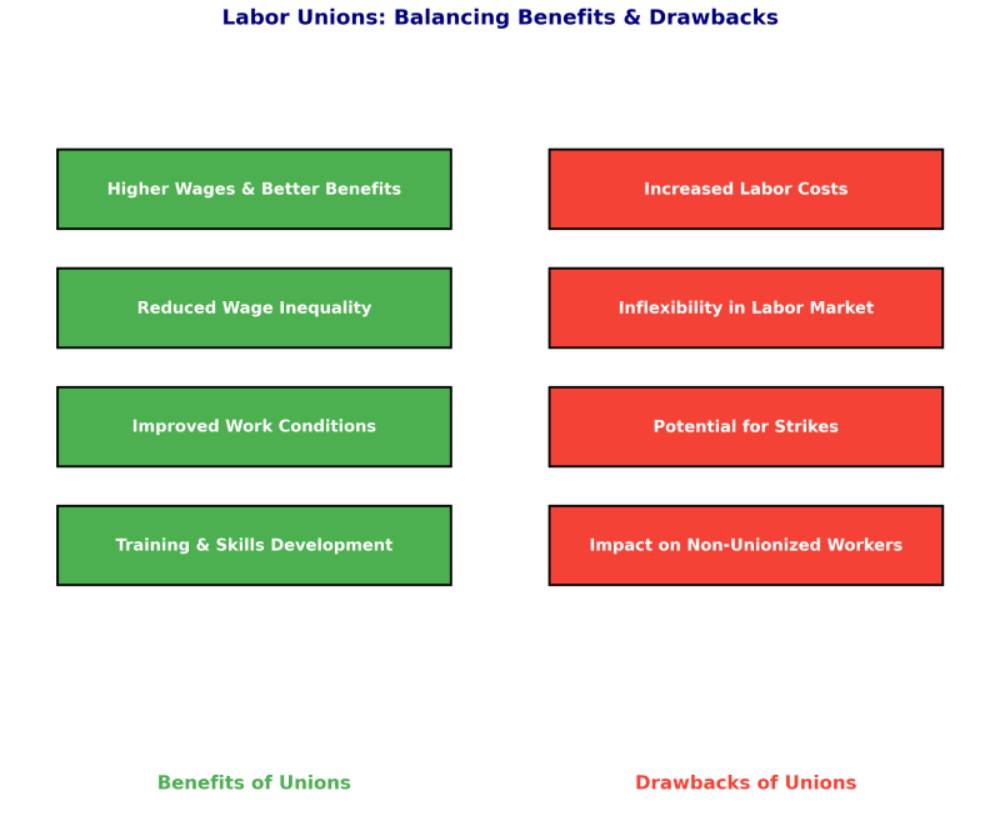The impact of labor unions on the economy is a complex and nuanced topic, with arguments both in favor and against their economic benefits. The effect of labor unions on the economy can be seen through various lenses, including wages, productivity, inequality, and overall economic performance. Here’s a summary of the main points from both perspectives:
### Benefits of Labor Unions to the Economy
1. **Higher Wages and Better Benefits**: Unions often negotiate higher wages and better benefits for their members compared to non-unionized workers. This can lead to increased consumer spending, which drives demand for goods and services and can stimulate economic growth.
2. **Reduced Wage Inequality**: By advocating for fair wages, unions can help reduce income inequality within societies. They are particularly effective in raising wages for lower and middle-income workers, contributing to a more equitable distribution of income.
3. **Improved Work Conditions**: Unions push for safer working conditions, reasonable working hours, and protections against arbitrary dismissal. These improvements can lead to higher productivity and lower employee turnover, which are beneficial for the economy.
4. **Training and Skills Development**: Some unions invest in training and skills development for their members, which can increase the workforce’s overall skill level, improving productivity and innovation.
### Potential Drawbacks of Labor Unions for the Economy
1. **Increased Labor Costs**: Higher wages and benefits negotiated by unions can increase overall labor costs for employers. In some cases, this might lead to higher prices for consumers, reduced competitiveness of companies, especially in global markets, and potentially lead to job losses if companies seek to cut costs or automate functions.
2. **Inflexibility in the Labor Market**: Union rules can sometimes make it difficult for employers to adjust their workforce according to changing economic conditions, potentially leading to inefficiencies and making it harder for businesses to adapt to new technologies or market demands.
3. **Potential for Strikes and Work Stoppages**: Disputes between labor unions and employers can lead to strikes and work stoppages, which can disrupt productivity and economic output in the short term.
4. **Impact on Non-Unionized Workers**: While unions benefit their members, there can be unintended consequences for non-unionized workers, including potential job displacements or wage pressures in sectors where unions are strong.
### Conclusion
Whether labor unions benefit the economy depends on a balance between their positive contributions to workers’ welfare and their potential to impose costs on employers and the economy. The net effect can vary widely depending on the context, including the strength of the unions, the sector of the economy they operate in, and the specific economic and regulatory environment of the country. Overall, labor unions play a critical role in advocating for workers’ rights and can contribute to a more equitable and just society, but their impact on the economy must be considered in a broader context of market dynamics and economic policies.

